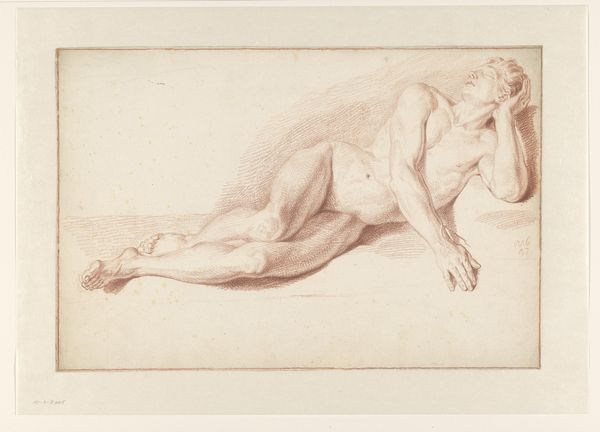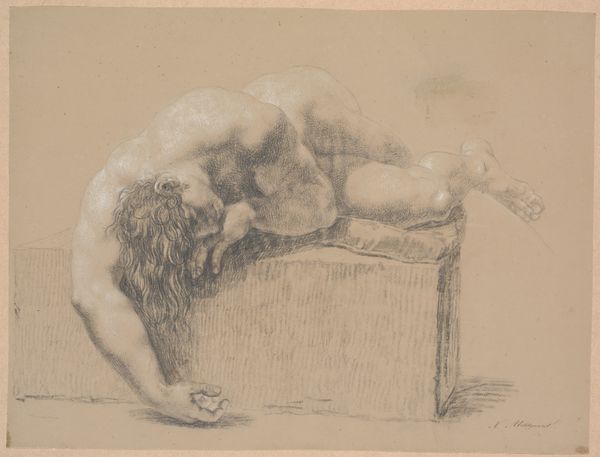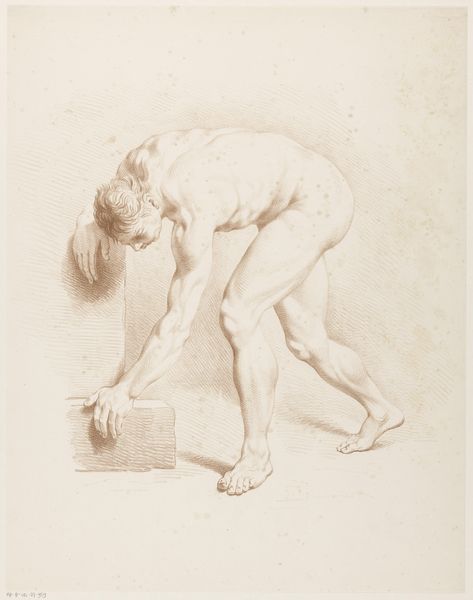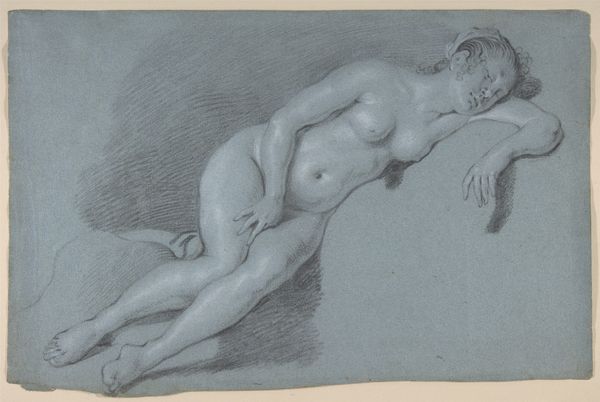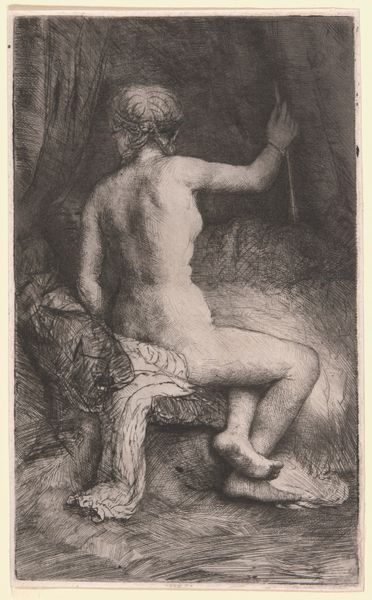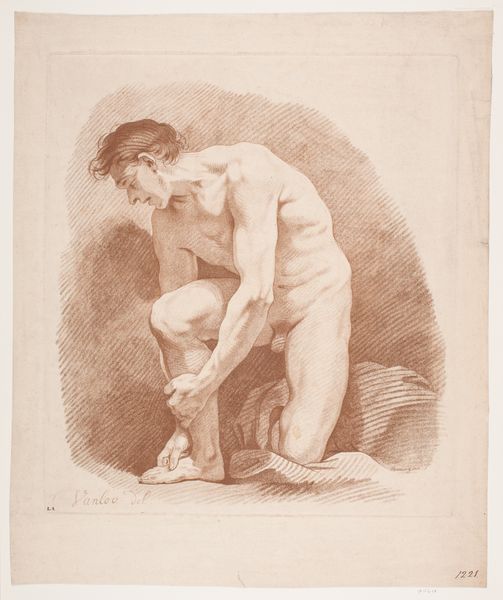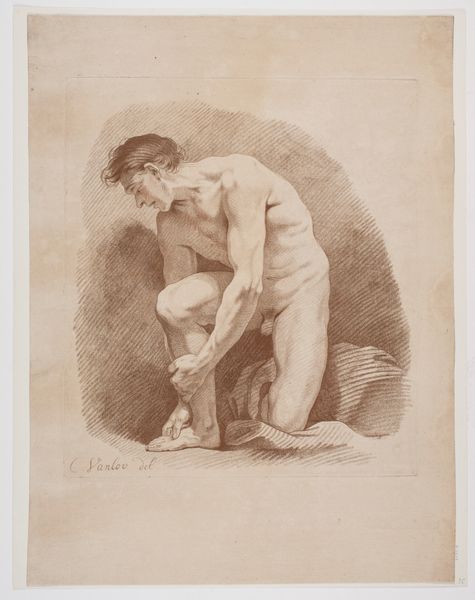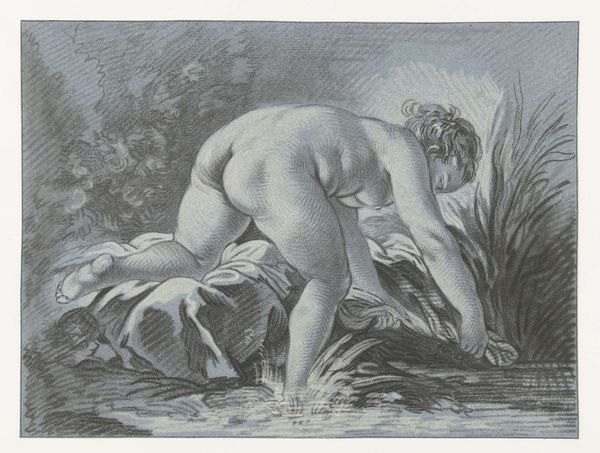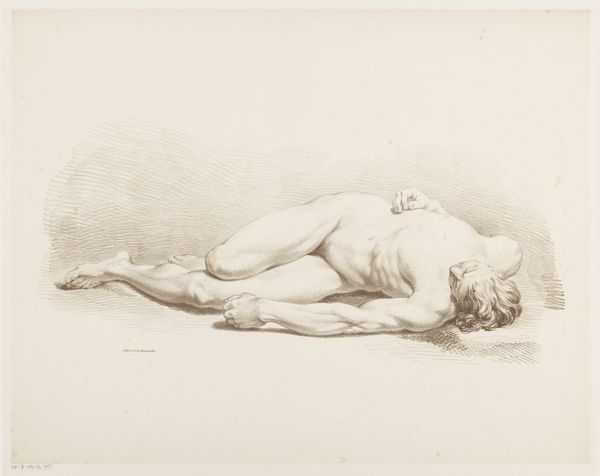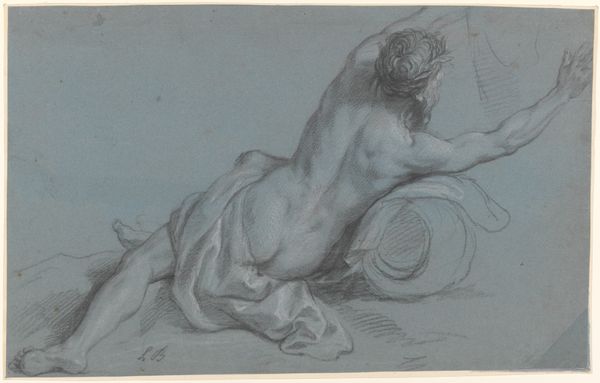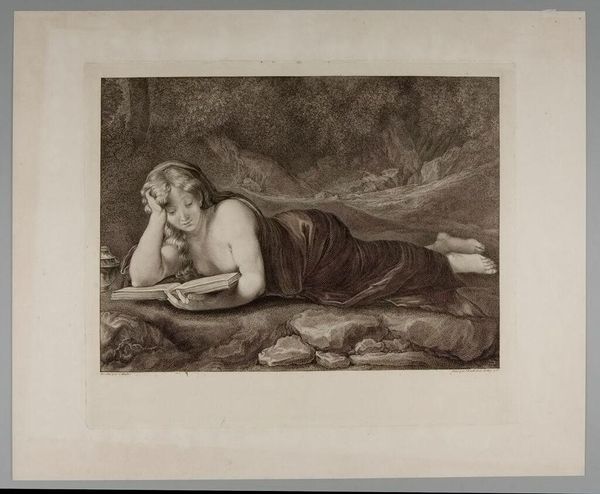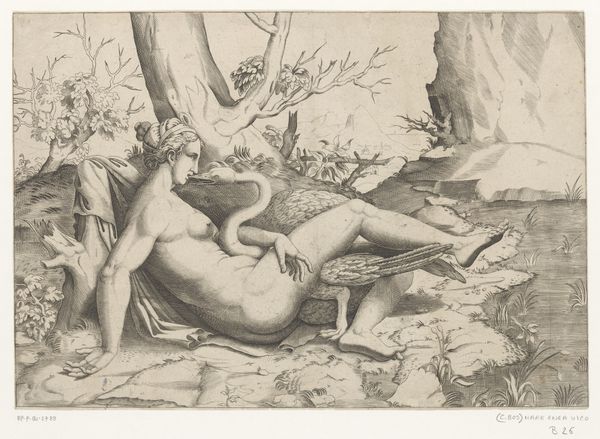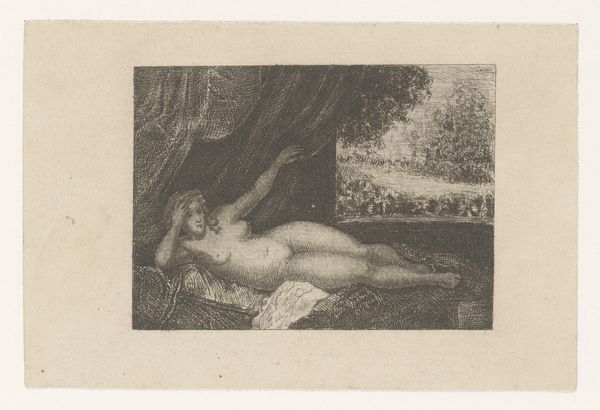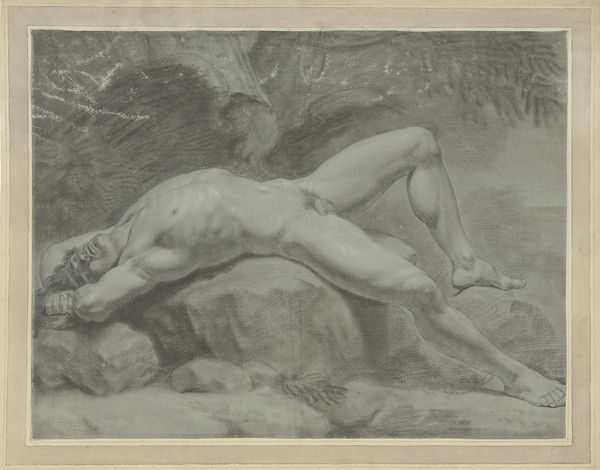
Dimensions: image: 330 x 475 mm sheet: 451 x 610 mm
Copyright: National Gallery of Art: CC0 1.0
Curator: Anna Massey Lea Merritt created this print, titled *Eve Repentant*, in 1887. It's quite striking. Editor: Indeed, there's a powerful melancholy that emanates from this print. The sepia tones contribute to a sense of solemn reflection. Curator: Merritt created this image after moving to England, amidst prevailing Victorian attitudes toward women. It offers a unique take on a common subject, that of Eve after the Fall. Considering its historical moment, what’s particularly significant is the emphasis on Eve’s internal emotional state. Editor: It’s fascinating to see the focus on female guilt and remorse. One wonders how this resonated with viewers then, as compared to today’s more nuanced views on feminine power. There's an inherent questioning of prescribed roles. Merritt highlights not the temptation, but the shame imposed by societal and religious structures. Curator: Absolutely, and the depiction itself goes against some artistic conventions. Eve isn’t idealized; she’s rendered with realistic anatomy. It is interesting that, unlike traditional renderings that display her supposed sin, this shows raw, unadulterated grief. It places her in a social context where such grief and shame were enforced by power structures of the time. Editor: Notice too, the choice of printmaking as a medium makes this a piece with inherently reproducible and democratic features. While Merritt certainly explored oil paints in other work, printmaking enabled broader distribution and potentially greater impact. Who, we might ask, was her intended audience, and what conversation did she hope to ignite through a widely-distributed representation of female guilt? Curator: It invites contemplation on the pervasive and persisting themes of blame, punishment, and ultimately, female agency—or lack thereof. What, ultimately, do you take away from our visit today? Editor: This is more than a retelling of a biblical narrative, but a social and historical commentary on gender roles and female experiences, particularly those surrounding repentance. Curator: I agree wholeheartedly. *Eve Repentant* isn't simply a depiction, but a defiant commentary embedded in the art world.
Comments
No comments
Be the first to comment and join the conversation on the ultimate creative platform.
